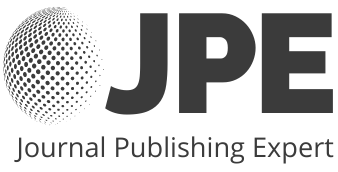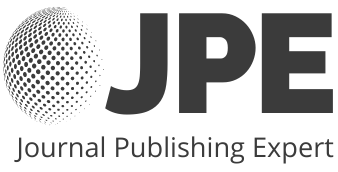Peer Review Pre-Submission
A pre-submission review, or “presub” as it is called in the editorial world, is a quick communication used by potential authors to reach out to journal editors to see if they would be interested in reviewing their work. One useful tool that helps authors choose which journals to send their work to in advance is pre review pre submission, or presubs. Although these pre-submission peer reviews are optional, they are beneficial. They enable individuals to rapidly ascertain if an article aligns with the goals and scope of the journal, peruse the opinions and recommendations of the editors, and investigate many journals before selecting one.
Numerous readers have inquired of us, the JPE editors, how we determine if research based on primary research is worthy of peer review pre submission. To determine if the research contributes anything new to the body of knowledge and whether it will be interesting to the journal’s varied audience, we essentially read the whole thing, summarize the findings, and place them in the perspective of what is previously known. With minimal information available, evaluating a pre-submission peer review means making assumptions about the substance of the complete document.
Reasons for Manuscript Rejection
There could be several reasons for manuscript rejection during peer review pre-submission. We at JPE focus on identifying these reasons and ensuring effective peer review before final submission. Before submitting papers to journals, the JPE is one of many peer-review pre-submission services that conducts preliminary checks on them. At this stage, your article may be rejected for the following primary reasons: submitting the same work to several publications at the same time is strictly prohibited as this may result in the article being subjected to plagiarism or peer review at another publication. The absence of the article’s title, authors, affiliations, keywords, primary text, references, tables, and figures suggests that it was not well prepared. It is impossible to conduct a fruitful peer review pre submission with inadequate English proficiency when the numbers are unclear or lacking in specificity or the work and the journal’s author guidelines are seriously out of compliance.
Moreover, some other reasons found during peer review pre-submission are the scope and purpose of the journal are not followed by this article that journal’s readers won’t find the research to be relevant. The document lacks the following: For instance, the article explores observations without providing a comprehensive analysis, or it looks at findings without taking into account other significant developments in the field. The absence of a clearly defined hypothesis or research objective renders the study useless in the field and these reasons can all be avoided through an effective peer review at JPE.
Solutions for Overcoming Manuscript Rejection
If the subject of your paper was deemed improper prior to peer review, JPE may assist you in submitting it to a different journal and perhaps secure publication. If your work is rejected after pre-submission peer review, you will have access to a wealth of information about potential areas for improvement. You have the following choices at your disposal: If you have already shown interest in publishing in a certain journal and the editor has said they would accept your work for publication with some adjustments, then this might be your first option. Please make the recommended changes and resubmit to the same journal. If the editor has rejected your work without any hesitation, you should accept their decision and submit it to another publisher through a significant peer review pre-submission.
Furthermore, another solution after peer review pre-submission failure is edits and a new submission to an alternative outlet: Even if you want to submit to a different journal, you should make sure that you thoroughly incorporate the feedback you received from the first round of reviewers into your manuscript editing process before resubmitting it. Before sending it to another journal, take care to edit every component including the cover letter, citations, and anything else pertinent to the journal.
JPE: Review the Research Paper
At JPE, we have peer review experts and we highly suggest to speak with individuals who are knowledgeable about your industry if you want their feedback and insight on your work. Before the work is published, the reviewers through their peer review pre-submission will ensure that it is original, comprehensive, and appropriate for the journal’s emphasis. Single-blind and double-blind peer reviews are more conventional forms of peer review, although open and transferable reviews are more contemporary methods.
Our specialists at JPE will conduct a comprehensive peer review of the work. The components of the research article that will be meticulously scrutinized include improper data analysis, poor method reporting, irrelevant outcomes, and a defective study design. Additionally, a thorough journal compatibility check will be carried out to reduce the likelihood of rejection. The feedback from our group will be compiled into a technical report that evaluates the work in many areas: adequate literature review, organization and structure, evidence-supporting findings, and presentation clarity. Hence, it is clear that JPE and its reviewers are always striving to help you get your research manuscript ready for final submission. So, if you are waiting for a peer review pre-submission then contact us now for a quick review.




